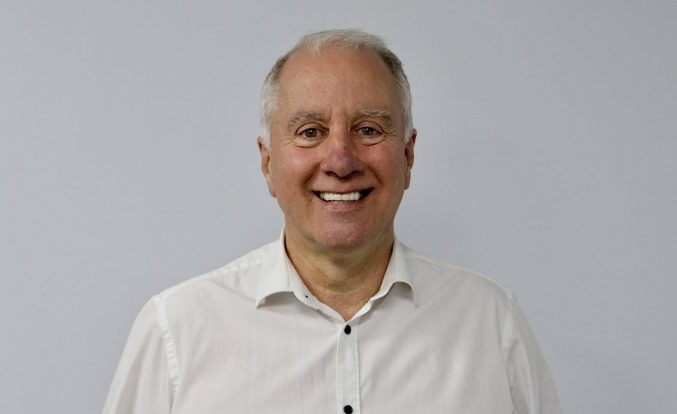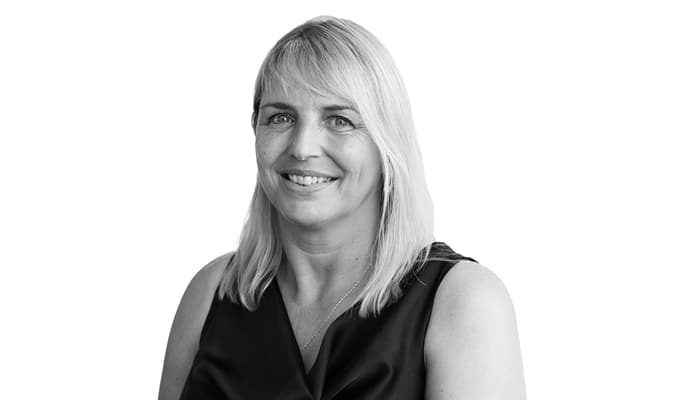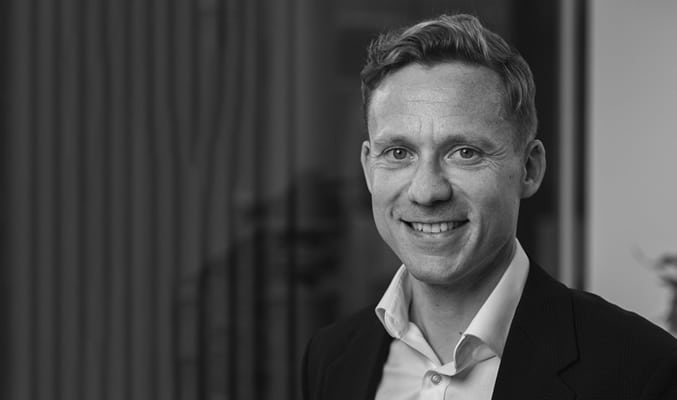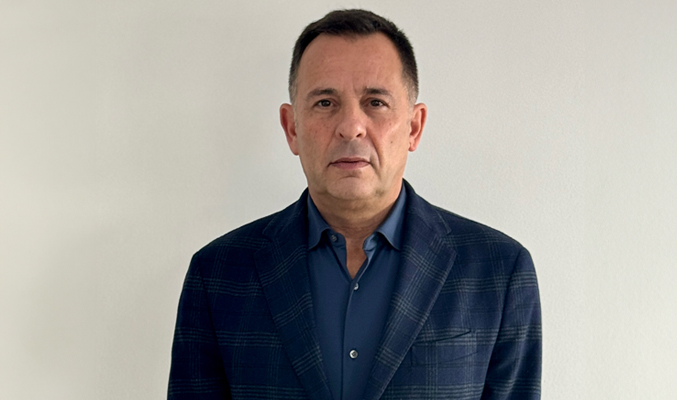‘Women should not feel intimidated or insecure’
By Tony Sanchez

In our latest Women in Finance Interview, Tony Sanchez speaks to Imogen Williams at Market Financial Solutions.
Imogen is a Regional Sales Manager at MFS, and covers London, as well as the South West and Wales. Personally, she specialises in the large loan space, working with prime central London property.
Prior to joining MFS, Imogen spent 10 years in the industry, starting life as a broker and working in long term lending. From there, she spent 3 years at a top London brokerage working with high-net-worth clients and large developers.
What brought you into financial services?
I started as an administrator for a small mortgage broker and the CEO helped me get CEMAP qualified.
As my knowledge and confidence grew, I discovered a passion for the property market. It was satisfying playing my part in supporting investors and homeowners with their property plans.
I quickly realised I wanted to focus my career on the property industry.
What do you think makes a successful leader? And in particular women leaders?
Being fair and pragmatic. Also, having a large personality helps as it makes you memorable and noticeable. Some industry participants may not take you as seriously as they would a man in the same position.
While this may be subconscious or not, I feel it’s important for women to dispel these outdated thoughts asap. Women should not feel intimidated or insecure.
It’s important to stand firm, and make your mark. Women need to show they not only know what they’re doing, but that they’re more than capable to tackle their industry’s challenges.
What are the biggest barriers you have faced in your career in financial services?
I’ve faced several outdated, stereotypical views in my career. People have assumed I’m incompetent simply because I’m a woman. Or, that I wouldn’t do as good of a job as a man.
Also, some men in the industry haven’t seen me as an equal. Often, I’ve been the recipient of “office banter”, when what I’m after is cooperation befitting of an esteemed colleague.
My end-goals and targets are the same as those of my male counterparts. At times, it feels like that’s been forgotten.
Unfortunately, dealing with these issues has led me to sometimes question my self-worth. I’ve had to overcome imposter syndrome.
It’s been difficult to keep my confidence in check, especially when I’ve seen male counterparts put forward for more training and development.
In this male dominated industry, standing out as a contemporary can be tricky.
If you could tell your younger self one thing you know about business now, what would it be?
Don’t give too much of yourself away. During the early stages of any career, I’m sure we’re all keen to appear as useful as possible.
There’s nothing overly objectionable about this, but I think it puts us at risk of telling people what they want to hear. Rather than actually working on what needs to be resolved.
I would advise my younger self to have more confidence in her abilities, and only go with the flow when it makes sense to.
What’s your own personal mantra?
In all honesty, I don’t have one. Working in my field has shown me the importance of being adaptable.
Sticking to rigid parameters may limit your ability to spot opportunities. I try to incorporate flexibility in how I operate.
What do you think is key for finding a successful work-life balance?
It’s worth identifying the occasions where extra hours are warranted. There will be inevitable busier periods.
Tasks need to be done, and deadlines need to be met. But, you need to counteract this with time for switching off.
I mean this literally too. Any time spent with family, at the gym, or even just with yourself should be enjoyed for what it is.
You need to shut down your work laptop, put your phone away, and only allow yourself to think about work where needed.
What’s one key leadership lesson you’ve learned along the way?
As much as you think you know, there is always more to learn. You have but one perspective. It’s crucial to listen to people and stay humble.
What advice do you have for women aiming for leadership positions?
Seek out other women in your industry. You will feel empowered, and they will be the best support you’ve ever had. They will also remind you that you’re not alone.
It can be disheartening facing up against a male dominated working culture. But it’ll be easier to overcome the issues with a supportive network behind you.
What do you think is holding women back?
A financial culture which has been dominated by men for decades. We tend not to like change. So, it’s somewhat inevitable that the status quo would issue resistance.
Participants may not even realise that they could be adding to these difficulties.
For my male colleagues, clients, and partners, I urge them to step back and take an objective look at how they do things.
Do you think there is still a glass ceiling?
Yes, although it’s one that is slowly – but surely – cracking.
What are your thoughts on the Women in Finance Charter?
I think it holds potential, but it needs to be followed through with action.
We can all pledge to do things differently. Whether we act on our promises is another question.
How do we encourage more women into financial services?
We need to shine spotlights on our success stories. We need to shout about the women in finance cause, keeping it at the top of the agenda.
This will not only encourage people in the industry to act, but could also draw in new entrants.
If women who are considering a career in financial services see that others have made it, they’ll have role models to emulate.
The gender pay gap is only second worst to the construction industry. What can organisations do to address this?
There’s no getting around it, organisations need to pay women more. Pay gap issues are multifaced, but the solutions don’t have to be.
When pay reviews come around, businesses should focus on the fundamentals, and perhaps, temporarily, take the human element out of the equation.
Organisations could focus primarily on whether a worker has hit their KPIs. Rather than if they make their colleagues laugh, or dress impeccably well.
Also, businesses can actively encourage more women into the industry. Where possible, we should be promoting and hiring women into senior positions.
What is your biggest achievement to date?
I don’t often look back and think ‘that was a great achievement’ in my personal or professional life to be honest.
Our industry moves quickly, so I tend to focus on what’s ahead of me, rather than obsessing over what’s come before.
That said, I know I need to learn from my past so that I remain committed to my long-term goals.
To that end, I’m particularly proud of how I’ve elevated myself to a point where I can help mentor new women coming into the industry.
I never thought I would ever be in a position to support women in such a male dominated sector.
It feels great to give back, especially considering the personal roadblocks I’ve had to overcome to reach this point.
As someone who has suffered from imposter syndrome my whole life, actually realising that I’m more than competent was a big personal achievement for me.
Allowing myself to embrace some personal kudos has gone a long way in improving my life in general, and my mental health.










You must be logged in to post a comment.